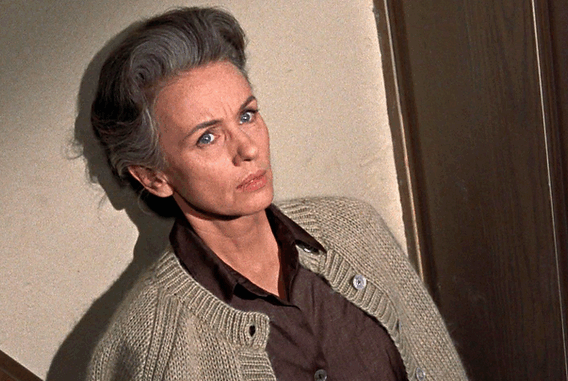
The Nursing Home Isn’t the End
Evelyn Couch first meets Ninny Threadgoode in a setting that would seem the end of most stories: a nursing home hallway. But for Ninny, life hasn’t closed its pages—it’s still being written, retold, and relived through her vivid storytelling. As Evelyn’s visits become more frequent, one specific moment stands out: a quiet afternoon on the nursing home porch when Ninny tells the story of the town’s great winter storm.
It seems simple at first: just another one of Ninny’s nostalgic tangents. But this story carries deeper layers. In it, Whistle Stop is paralyzed by a sudden snowstorm—a rarity in Alabama. Power is lost, the café is forced to close, and people huddle together for warmth and survival. Ninny describes Ruth and Idgie improvising a soup line out of salvaged food, neighbors sharing blankets, and Big George hauling coal from town, his skin blackened with soot, his laughter warming hearts more than any fire.
What begins as a charming anecdote slowly transforms into something else—an act of communion. Through her story, Ninny is not just reminiscing. She’s giving Evelyn access to something sacred: a memory of human kindness under pressure, of people becoming their best when everything went wrong.
Evelyn’s Awakening through Listening
As Ninny speaks, Evelyn isn’t just hearing about Ruth and Idgie anymore—she’s seeing them. In this porch scene, the distance between present and past collapses. Evelyn listens with her whole body, wrapped in the rhythm of Ninny’s voice, the creaking of the swing, and the hum of summer cicadas. It is the closest she has come to time travel, and she is forever changed by it.
This moment is not about big events or drama. It is about the way stories live in our blood. Evelyn begins to realize that memory is not a fading photograph—it’s a living flame passed from voice to voice. She sees how memory keeps communities alive, how it fuels identity, and how storytelling is survival.
Ninny as the Griot of Whistle Stop

In many cultures, the griot is the oral historian, the keeper of the soul of a people. Ninny Threadgoode, in her fragile frame and aged hands, is Whistle Stop’s griot. Her memory stretches beyond her years, and through her voice, long-gone figures like Ruth, Idgie, Buddy, and Sipsey breathe again.
In this porch moment, she becomes more than a kindly old lady. She becomes a vessel. The past speaks through her, not as distant history, but as living truth. She isn’t merely entertaining Evelyn—she’s inducting her into a tradition of remembrance. And as Evelyn begins to internalize the stories, she herself is changed.
The Snowstorm Story as Metaphor
The storm Ninny describes becomes more than a weather event—it becomes a metaphor for hardship. In the snowstorm, everyone is cut off from comfort, forced into vulnerability, and challenged to respond with either fear or solidarity. Ruth responds with calm and order. Idgie, with wild resourcefulness. Big George, with humor and muscle. Sipsey, with nurturing hands.
Each character’s reaction reveals their essence, and in their response, Evelyn finds a guide for her own internal storm. Her life may not be full of snow, but it is full of cold silences—neglect, disappointment, loneliness. The snowstorm of Ninny’s tale teaches Evelyn how to warm herself with community, how to trust her instincts, and how to stand in the cold with grace.
A Story That Changes Direction
Just as the story seems complete, Ninny turns quiet. Her eyes look far away. She tells Evelyn that Ruth died shortly after that storm—not directly because of it, but soon enough. The soup line was one of her last great efforts to bring people together. That detail lands like a whisper in Evelyn’s heart. The story isn’t just about strength—it’s about final gifts. Ruth’s actions in the storm, simple as they were, became a farewell.
Evelyn tears up without realizing it. She’s never met Ruth, and yet she feels like she knows her—loves her even. In that moment, she realizes the magnitude of Ninny’s storytelling. It hasn’t just preserved the past; it has resurrected it. Ruth, Idgie, Big George—they live again in her. Evelyn, who walked into the nursing home lonely and afraid, is now carrying an entire town inside her.
Legacy through Words
This scene doesn’t feature dramatic music or sweeping revelations. There’s no fistfight or deathbed or explosion. What makes it so powerful is its intimacy. A porch, a voice, and a heart wide enough to receive the truth of someone else’s life. That’s all it takes to change Evelyn forever.
By the end of the porch conversation, Evelyn is no longer just a visitor—she’s a part of Whistle Stop. The porch isn’t just part of a nursing home. It becomes a sacred space, a bridge between two women, two times, and two ways of being.
Evelyn learns something sacred here: you don’t have to see the past to belong to it. You just have to be willing to listen.
Conclusion: When Memory Becomes a Map
Ninny’s porch story about the snowstorm reveals one of the film’s most profound truths: memory is more than nostalgia. It’s a compass. A guide. A set of values passed quietly through generations.
For Evelyn, this moment is her turning point—not because it teaches her something new, but because it roots her in something eternal. She walks away from the porch different. Not fixed. Not finished. But transformed.
And maybe that’s the greatest power of Fried Green Tomatoes—it doesn’t just tell stories. It makes us part of them.
